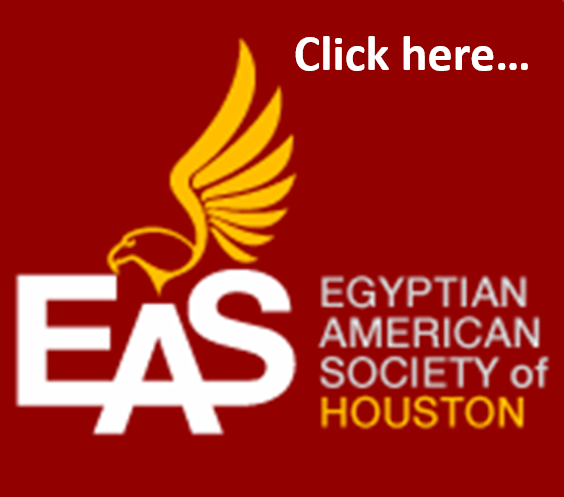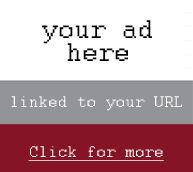Take an Interview Like a Champ
Randy Banna
Latest posts by Randy Banna (see all)
- Take an Interview Like a Champ - June 6, 2015
- Be a Shooting Star… - June 6, 2015
- How Vendor Management Works - June 6, 2015
- Success Through Social Intelligence - June 6, 2015
- On Aspirations and How I Failed my First Interview - June 6, 2015
The excitement, the tension, the intimidation, the focus and the final sigh of relief. The different stages we all go through when going through a professional interview, starting from being informed of a company interest in your application, through the preparation for the interview, the first two minutes of the interview then diving into the details to a final sigh when the test is done and the rising of high hopes of landing this job you longed for.
There are hundreds if not thousands of articles all over the World Wide Web and in company HR guidelines that we all have come across educating the reader as to how to tackle a professional interview be that on the technical or the social parameter. However there are factors that affect the decision makers that simply cannot be listed in a formal report.
Over the last 12 years, I was exposed to a fair number of interviews and I managed to learn a few tricks that I believe were vital for landing any of my jobs. Some of the thoughts may sound unorthodox for some and I certainly hope they can benefit anyone in the process of taking job interviews as the Oil and Gas industry is starting to slowly pick up, so now off to the body of the article.
Before the interview:
• Company portfolio
If you are a working professional with 5 years experience or more, it is highly likely you already know a lot of information about the company you are applying for. At that point of your career you should be targeting specific companies. It is extremely important that you become familiar with their current portfolio, their ongoing projects in the country you are applying at, their future plans and how well they are doing in the current world economics.
• Your CV
Run through your own CV line by line, make sure you know what you have written and take time to go through the details of every job you have done before. Remember the details on the technical skills level as well as on the soft skills level, take mental notes of the highlights and the low points you encountered on these jobs and how you benefited from them and how you managed to achieve your company objectives.
• Interviewers’ names and positions
If you are aware of the identity of your interviewers, then it is important that you go to Linkedin and check their personal professional profiles. Understanding the background of the interviewer allows you to formulate an opinion about their career achievements and hence develop some respect for their character. Being even a little bit more familiar with the interviewers takes away a good deal of the intimidation you feel during the first few minutes of the interview and will certainly help you answer questions better.
• Job description
You are being interviewed for a specific position, so make sure you are familiar with the job description of this position, be aware of the office and site job requirements, identify your stakeholders, some interview questions may be situational questions, as in you are given a context and asked about how you react or handle a certain issue. Knowing the job description and correlating that to your experience and skills will make a stronger candidate of you during a job interview because you will come across as a composed person who knows what needs to be done in the real life work situation.
• How will you add value to the company
Think logically as to how your experience and skills will benefit the company, on the technical level, does your knowledge of a certain product line benefit the advancement of your company’s products or may be help them establish a bigger market share? Do you have technical knowledge that is needed in the company that you can pass on to younger folks? Do you have established negotiation skills that will support the company’s business development? In summary, know your strong points so that you can emphasize on them during the interview.
• How the company will benefit you
What will the company give back to you? Travelling? Stronger experience? Promotion? Higher pay? More stable career? It is important that you identify what you are expecting from the company; this will help you during job offer negotiations and will obviously set your criteria for job acceptance.
• Potential for career growth
You always need to think of short and long term goals, short term being what you will be doing for the next 3 years, long term being what you will be doing after at least 5 years from now. The logical answer will be that the short term will be covered by the project you are to work on when you start with your new company, long term is more towards your next project or next career move. As you evaluate a company you are interested in and being interviewed for a job to work for, you need to identify what will be the short and long term goals assuming you will have a stable career within this company. This is useful for you and at the same time you may get asked about your future aspirations during the interview.
• Your questions about the company?
At the end of the interview it is typical for the interviewers to ask you whether you have any questions, most of the time your response will be negative, it shouldn’t be. I often like to ask about the ongoing projects, team sizes, training facilities or anything that I may find interesting in the company that I could not figure out by an internet search, remember that the interviewers dedicated time to meet you in person or call you for a phone or skype interview, so be wise as to how you will use this opportunity.
During the interview
• Start with a smile and a firm handshake
Self explanatory, come dressed properly, do not overdress to impress unless you are asked to depending on the job type, location and interview conditions. Be calm, speak deeply, have a moderate smile and a firm handshake. It all reflects your personality and you want to come across as a confident composed person.
• Take your time to answer, be concise and specific
Control your breathing during the interview, once you are done with the first few minutes, the rest of the interview should be easier. There is no need to rush to answer, take your time, reflect internally on the question and answer in a concise organized manner. It is of the greatest importance to have a clear mind and good focus during the interview, you need to give an answer based on your experience and ability to think logically keeping in mind at the same time how you can add value to your interviewing company. This manner you come across as a coherent individual who is capable of putting their experience into good use regardless of how new the environment they are placed in is and that you would make a good investment for the company.
• Show flexibility
Accept differences, there is nothing worse in professional world than the mindset described by this phrase “this is how we did it before” as this is more of an excuse than a credible reason. There are dozens of ways to do anything and everything in the workplace; there is no correct or wrong way. Be open to understanding, exploring and using new methods in the implementation of your work. During an interview, make sure you show this in your discussion, it will only add points in your favour.
• Do not pretend to know, there is no shame in saying I do not know
Some candidates out of intimidation tend to pretend to know. Even though this may go past unnoticed at times however it is a very risky and unethical thing to do.
If you do not know or have not come across an aspect you are asked about, you can always ask for further details and there is certainly no shame in saying you do not know, remember, you are a flexible person who is willing to learn new techniques and develop a better knowledge of areas you are not familiar with, this attitude reflects that you are capable of tackling new situations by thinking logically and obviously being honest will never deduct points from your competence.
• Do not try to impress
There is a reason why the interviewers were chosen for this task, they can read people, they get training on how to interview and they most likely have a lot more professional experience than you do. The rule of thumb is, if you try to impress, they will not be impressed; on the contrary, this will deduct points from you. It is most important that you are yourself, be genuine, be righteous and answer with the success of the project in mind; this will give the impression to the interviewers that you are the right person for this position because you are dependable, reliable and straight forward.
• Read into the interviewer’s body language
You can tell a lot by the interviewer’s facial expressions and body language. With experience you can develop a feel whether you are doing a good job in the interview or not. From the act of taking notes to casual smiles you can almost certainly understand whether you are accepted or not, the interviewer is trying to tick some boxes in their interview questionnaire, if you are a suitable candidate this will be evident within 30 minutes from the start of a face to face interview.
At the end and after the interview
• Finish the interview with thanks and a firm handshake.
• Keep open bridges
In the case you are not accepted, keep an open mind, accept the result as a sport and move on, learn from the mistakes you made and make sure you keep the bridges open, you never know when the same company may interview you again.
• Thank you notes/emails
I do not recommend after interview thank you notes or emails, if you are accepted then you should be discussing your offer, if not then you should be looking for interviews elsewhere. If I am an interviewer and I receive a thank you email from a candidate that I rejected, it will not add any value to the candidate evaluation.
Respect earns you respect




 />
/>



